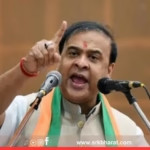Former India head coach Ravi Shastri has strongly defended the Board of Control for Cricket in India (BCCI) receiving the largest share of ICC revenues, asserting that India’s unmatched contribution to global cricket economics justifies its dominant position. His remarks come amid renewed debate over the 38.5% revenue share allocated to India under the ICC’s 2024–27 financial model.
💰 “India Generates the Most—It’s Only Fair”: Shastri
In an interview with Wisden, Shastri said:
“Absolutely, I would want more. Because most of the money that’s generated comes from India. So it’s only fair that they get their share of pound of flesh.”
He emphasized that India’s massive audience base, IPL’s commercial power, and global media rights pull make it the economic engine of world cricket.
📊 India’s Share vs Others: A Revenue Breakdown
- India (BCCI): 38.5% (~₹1,968 crore annually)
- England & Wales Cricket Board (ECB): 6.89%
- Cricket Australia (CA): 6.25%
- Remaining 12% split among nine other full-member boards
Shastri argued that this disparity reflects market realities, not favoritism:
“It’s relative, it’s economies. If tomorrow another economy is stronger, the money will follow,” he added.
🧠 Critics Cite Governance Imbalance
While Shastri’s stance aligns with India’s financial clout, critics argue that such a skewed model:
- Undermines smaller cricketing nations
- Centralizes power within the “Big Three” (India, England, Australia)
- Limits global growth of the sport
The Pakistan Cricket Board (PCB) was the only board to publicly oppose the model in 2023, demanding transparency in how the figures were calculated.
📺 India’s Global Pull: The Numbers Don’t Lie
Shastri pointed to:
- Surging TV rights for India’s overseas tours
- Record-breaking IPL valuations
- A 1.4 billion-strong potential audience as proof of India’s unmatched value to the ICC ecosystem
“When India travel, look at the television rights, look at the income that comes for an India series,” he said.
Stay tuned for updates on ICC governance and global cricket finance reforms.











